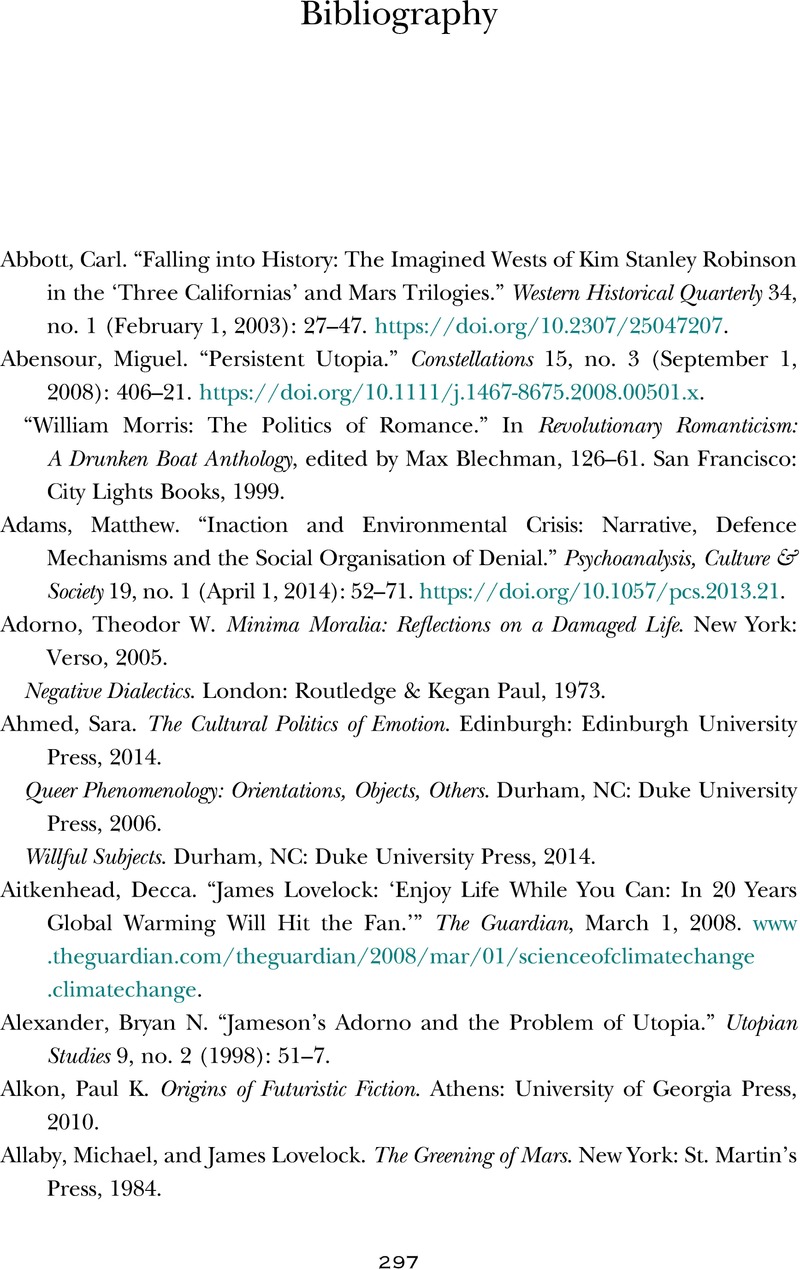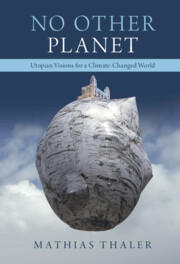Book contents
Bibliography
Published online by Cambridge University Press: 07 October 2022
Summary

- Type
- Chapter
- Information
- No Other PlanetUtopian Visions for a Climate-Changed World, pp. 297 - 348Publisher: Cambridge University PressPrint publication year: 2022

